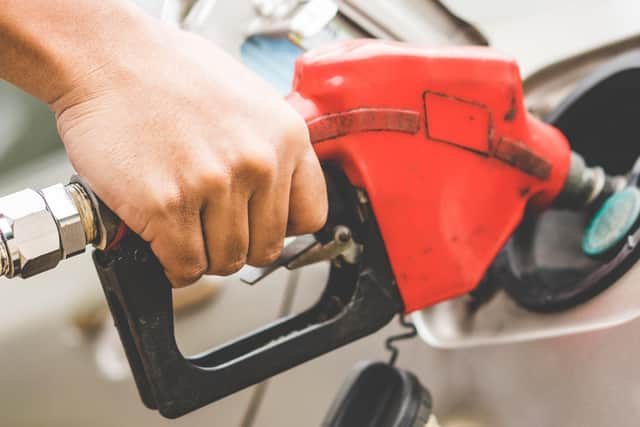Red Diesel: Flush out tank between jobs contractors warned
and live on Freeview channel 276
This is the response MLA Jim Allister received when he contacted HMRC to ask for clarification on upcoming rule changes to the use of rebated fuel.
Mr Allister used the example of a constituent who is a self-employed digger driver, carrying out contract work.
Advertisement
Advertisement
He travels to a local farmer to do some excavation work, and then proceeds to a construction site to carry out similar work before driving home.


The TUV leader asked HMRC to advise in respect of which of the journeys he can lawfully use red diesel, and for which excavation job he will be allowed to use it.
Mr Allister also asked for clarification around what this contractor is supposed to do in terms of emptying out one diesel and putting in another, and if he would be in breach of the law if he was detected travelling home, on a public road, with traces of red diesel in his tank.
He also questioned how the contractor could, practically, extinguish red diesel traces.
Advertisement
Advertisement
The North Antrim MLA said this scenario will be “common for many contractors”.


In their written response to Mr Allister, HMRC confirmed the use of rebated fuels will continue to be permitted for accepted agricultural activities after 1 April 2022.
This will also include using rebated fuel to travel to and from the place where the vehicle or machine is used, providing it is being used for an accepted use.
However, rebated fuel used for non-allowed purposes, such as excavation work on a construction site, including travel to and from that site where the vehicle is used, will not be allowed from 1 April 2022.
Advertisement
Advertisement
They stated: “From this date, contractors who use their vehicles (in your constituent’s case a digger) for both allowed and non-allowed purposes after the rules change, will need to either:
- flush out the tank to remove all traces of rebated fuel when switching between, for example, agricultural and construction uses; or
- use fully duty-paid diesel or biofuels for everything.
“This means your constituent will need to decide how to manage the fuel in their vehicle from April 2022.”
HMRC said this approach is required to ensure compliance and minimise any misuse of rebated fuel.
Advertisement
Advertisement
“We accept that flushing a tank may not fully remove all residual traces of the red diesel marker,” they continued.
“In this scenario, your constituent will need to be able to demonstrate to us that they have taken all reasonable steps to remove traces of red diesel marker from the fuel tank.
“Your constituent will need to retain records, including receipts or invoices, to demonstrate the tank has been flushed, and receipts showing the full amount of duty has been paid when the digger is used for a non-allowed use.
“Where the digger uses rebated fuel for allowed purposes, your constituent will also need to retain the relevant evidence to confirm this.
Advertisement
Advertisement
“We will consider what purpose the digger was being used for at the time of any inspection and whether this was an allowed purpose.”
HMRC have recently published interim guidance about these changes which can be found at: www.gov.uk/government/publications/changes-to-rebated-fuels-entitlement-from-1-april-2022
Vehicles or machines found running unlawfully on rebated fuel will be liable to be seized.
They will have the discretion not to seize the vehicle if the user can demonstrate to HMRC, using invoices and receipts, that they did not put rebated fuel into the fuel tanks after the rules changed.
HMRC will take a “pragmatic approach to enforcement”, including considering the steps businesses have taken to switch to using diesel or biofuels fuel which has had full duty paid.